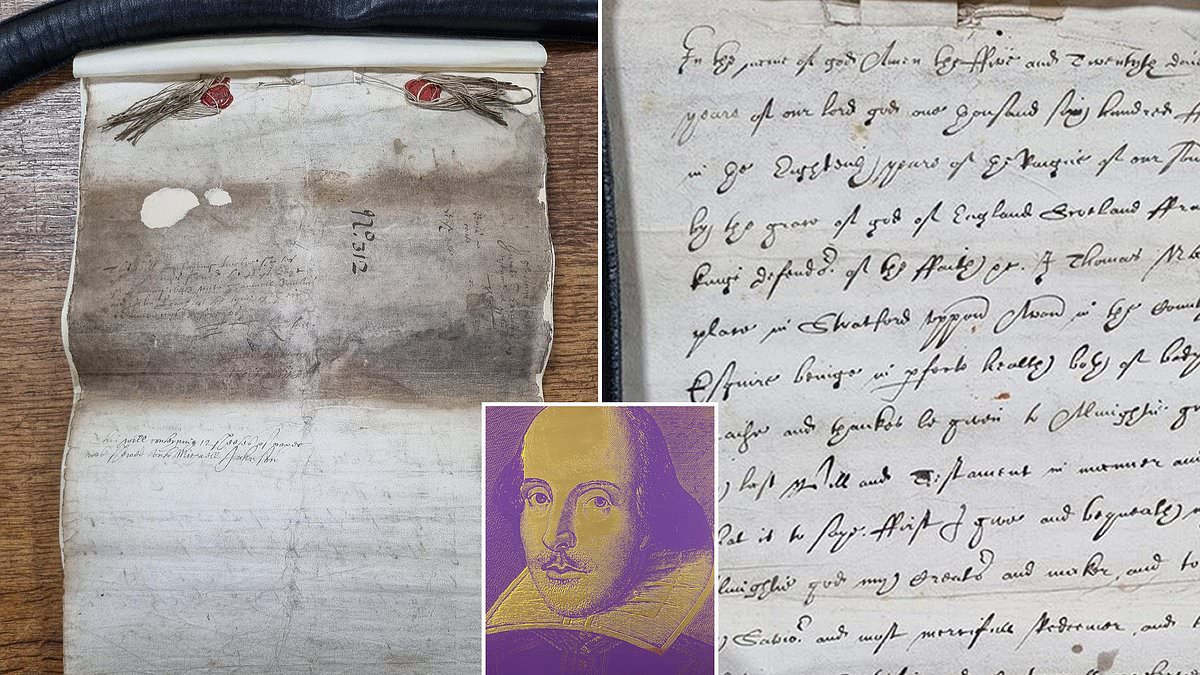A will which sparked a legal row over William Shakespeare’s Stratford-upon-Avon home has been discovered.
The document, drawn up in 1642, was found in a box of Chancery documents from the 17th century. It has never been seen before by modern historians.
It was made by Thomas Nash who was married to Shakespeare’s granddaughter Elizabeth.
They lived at New Place – Shakespeare’s family home from 1597 until he died there in 1616.
It was reputedly the second largest property in Stratford at the time when Nash made the will leaving it to his cousin, Edward Nash.
But Nash had no right to bequeath the house because it had been left by Shakespeare in his will to his eldest daughter, Susanna, who was still alive at the time and living in New Place with Nash and her daughter Elizabeth.
The confusion caused by Nash’s will prompted Susanna and Elizabeth to obtain a legal document confirming that they still held Shakespeare’s estates when Thomas Nash died before both of them in 1647.
This riled Edward Nash and he took Elizabeth to court the following year, arguing that she should honour the terms of Thomas’ will.
Elizabeth, who later became Lady Barnard, is believed to have settled the matter out of court and lived in the residence until her death in 1670.
The house was demolished in 1759 and is now a memorial garden owned by the Shakespeare Birthplace Trust.
Dr Dan Gosling, Principal Legal Records Specialist at The National Archives, who discovered the will, said: ‘This is a really exciting discovery, showing how the execution of Shakespeare’s will wasn’t entirely smooth sailing.
‘Elizabeth had to bring her husband’s will into court and explain why she hadn’t honoured the terms of it.
‘In the Chancery proceedings, though, Elizabeth stood up to Edward Nash, arguing that her late husband had no right to grant New Place, specifically mentioning that it had been left by her grandfather William Shakespeare to her mother Susanna Hall.’
